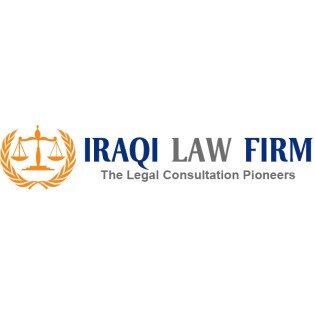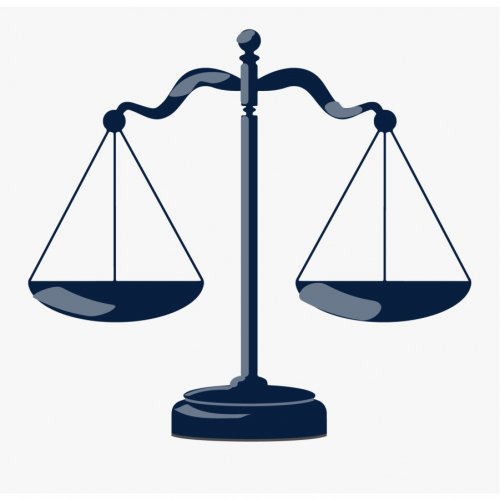Best Business Lawyers in Iraq
Share your needs with us, get contacted by law firms.
Free. Takes 2 min.
Or refine your search by selecting a city:
List of the best lawyers in Iraq
About Business Law in Iraq
Iraq, with its vast natural resources and strategic location in the Middle East, presents numerous opportunities for business. However, navigating the business landscape requires an understanding of the local laws, regulations, and customs. Business law in Iraq is a complex blend of regulations addressing company formation, taxation, contractual agreements, employment, and property. The legal framework is designed to foster investment, protect intellectual property, and regulate trade practices. As Iraq continues to develop its infrastructure and economy, understanding its business law becomes crucial for entrepreneurs and investors looking to establish or expand their businesses in the region.
Why You May Need a Lawyer
Engaging a lawyer may be essential in various situations involving business in Iraq. Common scenarios include:
- Establishing a company and navigating the legal requirements for business registration and licensing.
- Negotiating and drafting contracts to ensure they comply with local laws and protect your interests.
- Understanding and complying with tax obligations and corporate regulations.
- Resolving disputes with partners, employees, or other third parties through mediation, arbitration, or litigation.
- Protecting intellectual property rights and ensuring compliance with international standards.
- Navigating labor laws and managing employment-related legal issues.
- Handling mergers, acquisitions, or winding up businesses in accordance with legal procedures.
Local Laws Overview
The legal system in Iraq is influenced by both civil and Islamic law traditions. Key aspects of local laws relevant to business include:
- Company Law: Governs the formation, management, and dissolution of companies. Foreign investors must adhere to specific requirements regarding ownership and company structure.
- Contract Law: Contracts are generally upheld if they do not contradict public policy or Islamic principles.
- Taxation: Businesses must comply with various tax obligations, including corporate taxes, VAT, and employee taxation.
- Employment Law: Regulates employment contracts, worker rights, and social security arrangements.
- Property Law: Governs the ownership and transfer of property, with specific provisions for foreign ownership.
- Trade Regulation: Includes rules on import/export, commerce, and anti-trust matters to maintain fair business practices.
Frequently Asked Questions
How do I start a business in Iraq?
Starting a business involves several steps, including registering the company with the Companies Registry, obtaining necessary licenses, and complying with tax obligations. Legal advice can streamline this process.
Can a foreigner own a company in Iraq?
Yes, but there are regulations concerning foreign ownership, especially in certain sectors. A local partner or legal representation may be required.
What types of business entities are available in Iraq?
Common entities include Limited Liability Companies (LLC), Joint Stock Companies, and branch offices of foreign companies, each with specific legal requirements.
What is the corporate tax rate in Iraq?
The corporate tax rate is generally a flat rate, but specific rates or incentives may apply depending on the industry or region.
How are employment disputes resolved?
Employment disputes can often be resolved through mediation or arbitration, with labor courts available if necessary.
What are the limitations on foreign investment?
While there are opportunities for foreign investment, certain sectors may have restrictions or require local partnerships.
How do I protect intellectual property in Iraq?
Intellectual Property Law in Iraq is designed to protect patents, trademarks, and copyrights. Registration with the relevant authority is necessary.
Is dispute resolution available for contract issues?
Yes, commercial disputes can be handled through arbitration or the Iraqi court system, depending on the contract terms and dispute nature.
What do I need to import goods into Iraq?
Businesses must comply with import regulations, including tariffs, the required documentation, and, in some cases, specific import licenses.
Are there any incentives for starting a business in Iraq?
The government may offer incentives such as tax exemptions and investment advantages in specific sectors or regions to encourage economic development.
Additional Resources
For more information or assistance, consider reaching out to the following resources:
- The Iraqi Ministry of Trade: Licensing and trade regulations.
- The Iraq Chamber of Commerce: Networking and business support services.
- Investment Commissions: Guidance for foreign and domestic investment opportunities.
- Legal firms specializing in international business law in Iraq.
Next Steps
If you require legal assistance in business matters in Iraq, consider the following steps:
- Identify your specific legal needs, whether it's setting up a business, resolving disputes, or complying with regulations.
- Research and select a reputable law firm or legal advisor familiar with Iraqi business law.
- Consult with them to understand your rights, obligations, and options available for your situation.
- Develop a plan of action in collaboration with your legal advisor to ensure compliance and protect your business interests.
By taking these proactive steps, you'll be better equipped to navigate the business environment in Iraq successfully.
Lawzana helps you find the best lawyers and law firms in Iraq through a curated and pre-screened list of qualified legal professionals. Our platform offers rankings and detailed profiles of attorneys and law firms, allowing you to compare based on practice areas, including Business, experience, and client feedback.
Each profile includes a description of the firm's areas of practice, client reviews, team members and partners, year of establishment, spoken languages, office locations, contact information, social media presence, and any published articles or resources. Most firms on our platform speak English and are experienced in both local and international legal matters.
Get a quote from top-rated law firms in Iraq — quickly, securely, and without unnecessary hassle.
Disclaimer:
The information provided on this page is for general informational purposes only and does not constitute legal advice. While we strive to ensure the accuracy and relevance of the content, legal information may change over time, and interpretations of the law can vary. You should always consult with a qualified legal professional for advice specific to your situation.
We disclaim all liability for actions taken or not taken based on the content of this page. If you believe any information is incorrect or outdated, please contact us, and we will review and update it where appropriate.
Browse business law firms by service in Iraq
Iraq Attorneys in related practice areas.
Browse business law firms by city in Iraq
Refine your search by selecting a city.

















